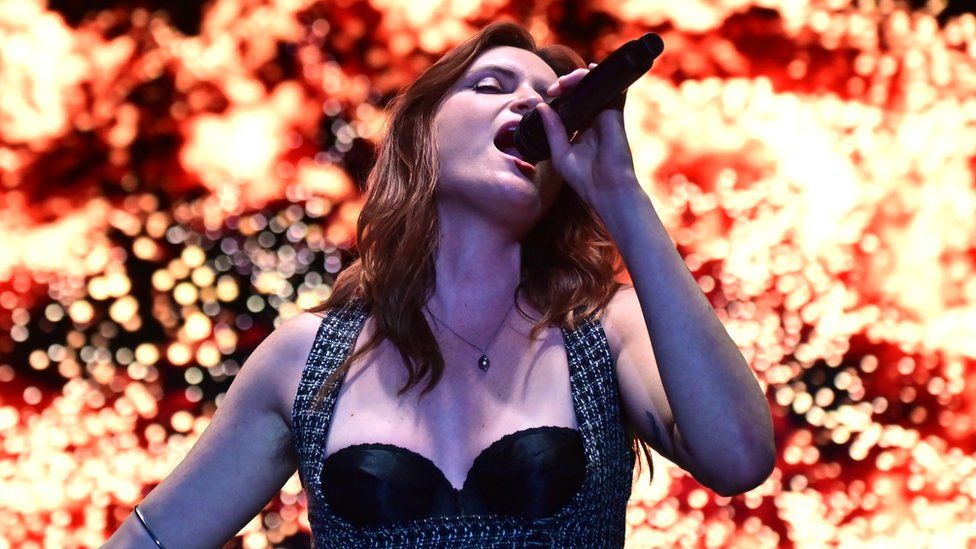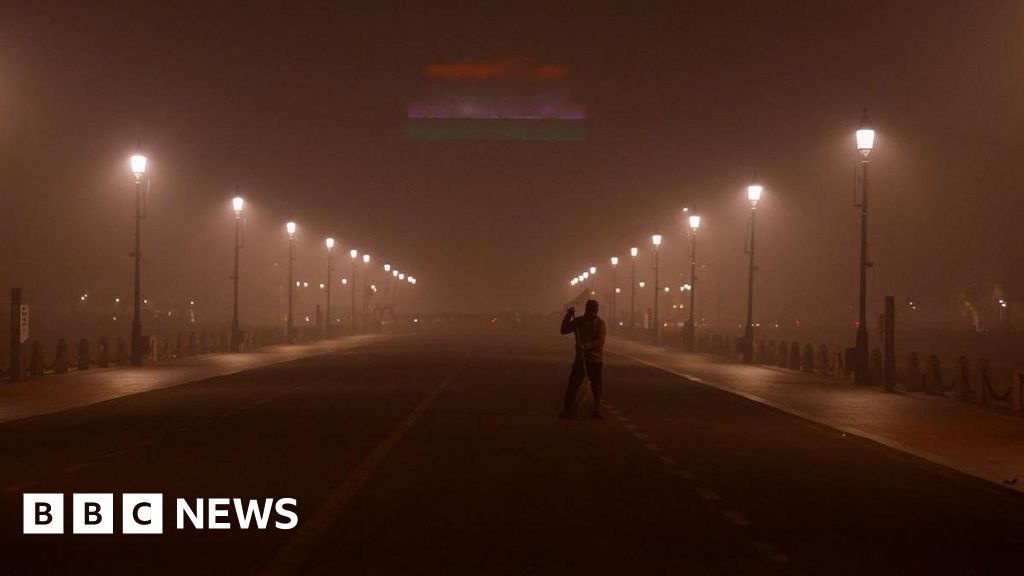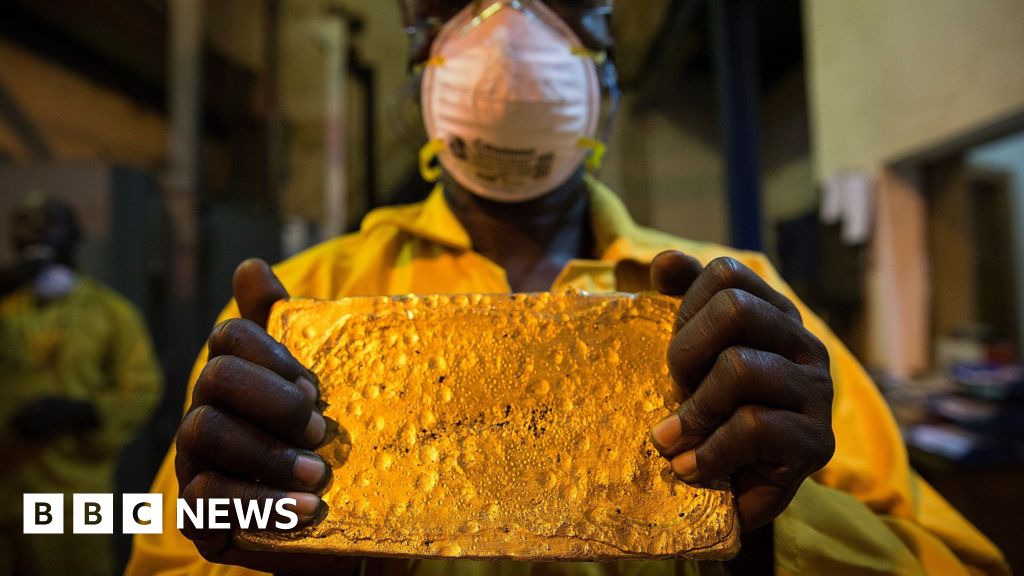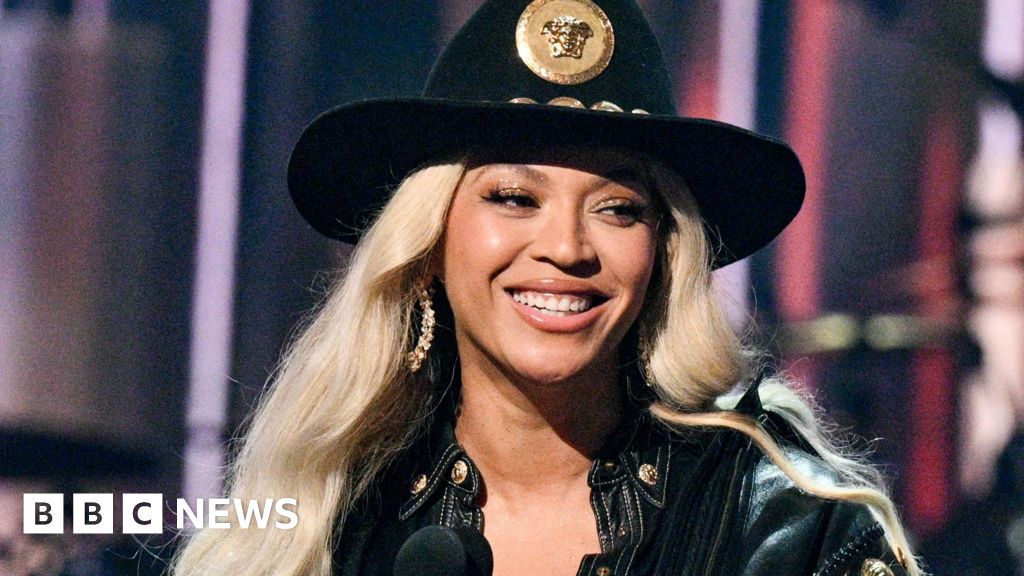ARTICLE AD BOX
 Image source, Getty Images
Image source, Getty Images
By Mark Savage
BBC Music Correspondent
The first time LA pop group Muna chatted to BBC News, they were a fresh young band about to play their first ever show in the UK.
Lead singer Katie Gavin was nervy with anticipation ("does the venue have a stage?") while her bandmates simply wanted to sample UK culture.
"I had a veggie pie the other night," declared guitarist Naomi McPherson. "Those things are messed up."
Six years later, they're back for a sold-out UK tour, playing major venues like London's Roundhouse and Manchester's Albert Hall. But their journey has been far from easy.
Muna formed in 2013 at the University of Southern California. after McPherson spotted Gavin cycling through the campus and told a friend: "That girl's cool."
Later, they hooked up with fellow guitarist Josette Maskin at a party and wrote their first song while everyone else got drunk.
Gavin immediately proved to be a sharp lyricist, telling compassionate and precise stories of heartbreak, intimacy, and the complications of growing up queer (all three members identify as queer and McPherson is non-binary).
The synth-pop anthem I Know A Place talked about finding a sense of belonging in gay clubs, while Loudspeaker was a defiant riposte to bigots everywhere: "Every time I don't shut up, it's a revolution".
Critics loved them. NPR said their music was "what relatability feels like to people who've always felt different". Harry Styles invited them on tour. Taylor Swift included them on playlists.
But despite the acclaim, they remained a cult band signed to a major label, and when the pandemic hit, they were dropped as part of a cost-cutting drive.
For a moment, they were left adrift. Gavin admits they considered packing it all in. But then they found a white knight, or maybe it was a guardian angel... Either way, it was indie star Phoebe Bridgers, who'd been a fan for years.
"Phoebe's manager had made it very clear that if we were ever single, she'd be interested in working with us," says Gavin.
"So we had a conversation pretty shortly after we were dropped and she was like, 'I love everything you're doing and I would like to support you so you can keep doing it'."
Image source, Getty Images
Image caption,Muna attend the Grammy Museum with their "boss" Phoebe Bridgers (left)
Once Bridgers signed Muna to her Saddest Factory Records label in 2021, their fortunes changed overnight.
Their self-titled third album became their first record to chart in the UK and US; and the lead single, a girl crush anthem called Silk Chiffon, was a certifiable smash hit - thanks partly to a guest verse from their new boss.
"The whole situation is an indicator of how we're subconsciously rebellious," says McPherson. "When we were on a major label we didn't want to make a big pop song and now that we're on an indie, it's like, 'Well, go on then, why not have a bit of fun?!'"
Silk Chiffon exposed Muna to a whole new audience, something they discovered belatedly, after setting out on tour this summer.
"People didn't really know a lot of the older songs," says McPherson. "We were like, 'Oh my gosh, does that mean they're new fans?'
"So we started asking people, 'Hey, who hasn't been to a show before? Raise your hand!' And sometimes it'd be 75% of a crowd. We talk about it all the time."
Warning: Third party content may contain adverts
Older fans will know that the breezy sound of Silk Chiffon, with its fluttering harmonies and flirtatious lyrics, is a big departure for Muna.
It illustrates a new way of thinking for Gavin, who has struggled with anxiety, body dysmorphia and other people's homophobia her entire adult life.
"As people who experience an array of different marginalised identities, what is the point if you're not trying to find some happiness?" she says.
"If you're not seeking that out it's not going to present itself to you. So you kind of have to make an effort to be happy, even though that sounds a bit cringe.
"And we feel very touched that other people who struggle resonated with the song and are still making memes about it. It's very sweet and important to us."
The positivity and hopefulness of Silk Chiffon continues throughout the band's new album.
What I Want is a thunderous, post-pandemic ode to going absolutely berserk on a night out. Anything But Me describes the relief of escaping a bad relationship. Loose Garment is about treating yourself with kindness.
"I used to wear my sadness like a choker / Yeah, it had me by the throat," sings Gavin over a subdued guitar lick. "Tonight I feel I'm draped in it / Like a loose garment."
Like many Muna songs, it was prompted by the end of a relationship, but this time "there was a difference in the way that I handled that pain," says Gavin.
"Historically if I'm in pain, I actually want to make it more painful. But that night, I went on a walk by the LA River and I went to dinner and watched the sun go down and did something nice for myself at a time when I was really hurting - and I felt a swell of gratitude for this new ability to make things easier [for myself] instead of making them harder."
Image source, Frank Ockenfels
Image caption,Muna (L-R): Naomi McPherson, Katie Gavin and Josette Maskin
It's an idea Gavin makes explicit on another track, the Shania Twain-influenced Kind Of Girl.
With lyrical call-backs to Muna's previous albums, she describes herself as someone who "presses a little too hard" and is "in love with the pain". But instead of dwelling on those emotions, as she would have in the past, Gavin resolves to evolve.
"I'm a girl who's learning everything I say isn't definitive," she sings. "I like telling stories / But I don't have to write them in ink."
The 29-year-old says the song was inspired by studying her old lyrics.
"I was concerned about writing the same song over and over," she says, "and so I was confronted with my own patterns, in a way that someone who's not a songwriter maybe wouldn't be."
"I was like, 'Wow, I'm really doing the same stuff over and over again. So if I want to continue, I need to make some new choices because I deserve to feel better.
"And part of the reason I wanted to feel better is because I wanted to show up for this group - so it's beautiful that it all ends up going back into the songs and we can share that with other people."
Warning: Third party content may contain adverts
That belief, in giving a voice to marginalised people like themselves, is what unites the band.
"Part of the reason I was attracted to [the group] is because when Katie wrote Loudspeaker I was like, 'OK, someone's going to hear this song and it's going to matter'," says Maskin.
"It's hard, I think, to write a song with a meaning that is actually good - but Katie has a gift."
The sense of responsibility isn't lost on them, but Gavin carefully rejects the notion that Muna should be put on a pedestal.
"When we play these days, there's an incredible amount of energy because people are using these songs to release stuff," she says. "But we've just decided to channel that, let it go through without thinking, 'This is all happening because of me.' Because it's not.
"Just being a part of it, I think, is really the privilege."
And that audience will grow even further next summer thanks to Taylor Swift, who has booked Muna to play on her 2023 stadium tour.
"We literally found out about two weeks ago," says McPherson. "We were like, 'If she's asking, we're gonna say yes.'
"And so we did say yes. And we're very, very, very, very humbled and excited."

 2 years ago
21
2 years ago
21








 English (US)
English (US)